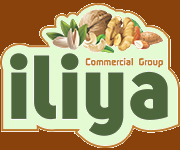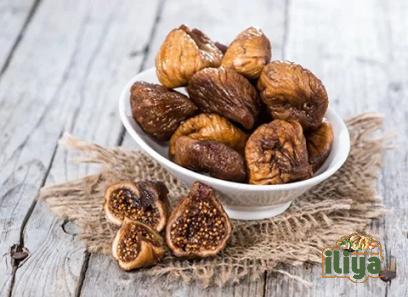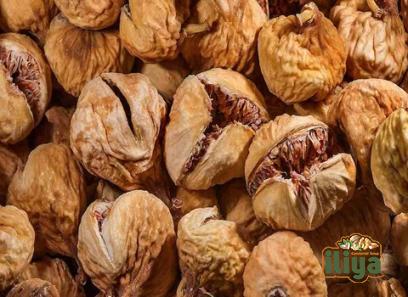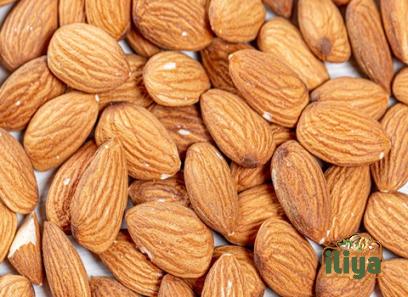Nuts are an essential part of a healthy and balanced diet. With their high nutritional value and numerous health benefits, nuts are gaining popularity among consumers worldwide. As a result, there is a growing demand for nuts in bulk, both in the retail and wholesale markets.
Nuts in bulk are often purchased by individuals, families, and businesses for various purposes. These include personal consumption, baking, cooking, snacking, and inclusion in food products. The availability of nuts in bulk allows consumers to conveniently stock up on their favorite varieties or experiment with new flavors and types.
One key advantage of purchasing nuts in bulk is cost-effectiveness. Bulk buying eliminates the need for excessive packaging and retail markups, resulting in significant savings for consumers. Moreover, buying in bulk allows for greater flexibility in portion control, enabling individuals to measure out the desired quantity of nuts according to their needs.
The market for nuts in bulk is not limited to consumers alone. Specialized business sectors, including food manufacturers, restaurants, and distributors, also rely heavily on bulk purchasing. Nuts are utilized as ingredients in various food products such as granola bars, chocolates, cereals, and trail mix. By sourcing nuts in bulk, businesses can ensure a consistent supply of high-quality ingredients while reducing costs and increasing profitability.
Another factor contributing to the growing demand for nuts in bulk is the increasing number of health-conscious consumers. Nuts are known to be rich in essential nutrients, healthy fats, and antioxidants that promote heart health, lower cholesterol levels, and reduce the risk of chronic diseases. The nutritional benefits of nuts, coupled with the ease of availability and cost-effectiveness of purchasing in bulk, make them an attractive option for health-conscious individuals looking to incorporate nutritious snacks into their daily routines.
Various types of nuts are available in bulk, offering consumers a wide array of options to choose from. Some popular varieties include almonds, walnuts, pecans, cashews, peanuts, hazelnuts, and pistachios. Each type of nut has its own unique flavor profile and nutritional benefits, catering to different tastes and preferences.
Almonds, for instance, are a versatile and nutrient-dense nut, packed with protein, fiber, healthy fats, and vitamin E. They are often used in baking, as a topping for salads and cereals, or enjoyed as a crunchy snack. Walnuts, on the other hand, contain high levels of omega-3 fatty acids, which are beneficial for brain health and overall well-being.
The demand for nuts in bulk extends beyond traditional varieties, with exotic and specialty nuts gaining popularity as well. Macadamia nuts, Brazil nuts, pine nuts, and chestnuts are examples of specialty nuts that are sought after for their unique textures and flavors. These specialty nuts are often used in gourmet recipes, confectioneries, and high-end food products.

In response to the increasing demand for nuts in bulk, retailers and wholesalers have expanded their offerings to include a wide variety of options. They provide packaging solutions such as bulk bins, reusable containers, and vacuum-sealed bags to meet the diverse needs of consumers and businesses alike. Additionally, many of these suppliers offer online platforms, making it easier for customers to purchase nuts in bulk from the comfort of their own homes or businesses.
While the demand for nuts in bulk continues to grow, there are considerations to keep in mind when purchasing and storing. Nuts, like any other food product, have a shelf life and can go rancid if not stored properly. It is crucial to ensure that nuts are stored in a cool, dry place to maintain their freshness and flavor. Additionally, it is advisable to purchase from reputable suppliers who prioritize quality, hygiene, and food safety standards.
In conclusion, the growing demand for nuts in bulk is driven by several factors, including cost-effectiveness, health benefits, and the convenience of purchasing in large quantities. Nuts in bulk cater to the needs of both individual consumers and businesses, providing them with a diverse range of nuts to choose from. As the trend towards healthier snacking and ingredient sourcing continues to rise, it is expected that the popularity of nuts in bulk will continue to soar in the coming years.Title: The Growing Demand for Nuts in Bulk: Boosting Profits in the Business Sector
Introduction:
The demand for nuts in bulk has been steadily increasing, driven by factors such as cost-effectiveness, health benefits, and convenience. This growing trend presents excellent business opportunities for various sectors, including nut wholesalers, food manufacturers, restaurants, and distributors. In this article, we will explore how businesses can capitalize on the growing demand for nuts in bulk, boosting profits and customer satisfaction.
1. Nut Wholesalers: Meeting the Needs of Retailers:
Nut wholesalers play a crucial role in the supply chain, connecting producers with retailers. By sourcing a variety of nuts in bulk, wholesalers can cater to the diverse needs of retailers, ensuring a consistent supply of high-quality products. They can offer competitive pricing, flexible packaging options, and efficient distribution to meet the demands of individual retailers and their customers.
2. Food Manufacturers: Enhancing Product Development:
The use of nuts in food product manufacturing is on the rise. For food manufacturers, purchasing nuts in bulk provides numerous benefits in terms of cost savings and creativity. Bulk buying allows manufacturers to experiment with different nut varieties, creating unique flavors and textures for their products. Whether it’s granola bars, cookies, or cereals, incorporating nuts in bulk can elevate the taste and nutritional value of food items, attracting health-conscious consumers.

3. Restaurants and Caterers: Adding Nutty Delights to Menus:
Restaurants and caterers can take advantage of the availability of nuts in bulk to enhance their menus. Nuts can be used as toppings on salads, added to pasta dishes, or used in sauces and spreads. The versatility of nuts offers endless possibilities for chefs to create innovative and delicious recipes. Purchasing nuts in bulk allows restaurants to maintain consistency in flavor profiles while controlling costs, resulting in increased customer satisfaction and profits.
4. Distributors: Catering to the Snacking Craze:
The growing demand for healthier snacking options presents a significant opportunity for distributors. Nuts in bulk can be packaged into convenient snack-sized portions, catering to the on-the-go consumer. Distributors can partner with retailers, vending machine operators, and online platforms to make nuts readily available to customers seeking nutritious snacks. Building strong relationships with nut wholesalers and manufacturers ensures a steady supply chain, meeting the demand for nuts in the snacking market.
5. Online Retailers: Ease of Accessibility and Convenience:
The rise of e-commerce has fundamentally changed the way consumers shop for nuts in bulk. Online retailers can leverage the trend by offering a wide variety of nuts and packaging options to meet individual preferences. They can provide detailed product descriptions, customer reviews, and nutritional information to help consumers make informed buying decisions. By providing hassle-free delivery services, online retailers can cater to customers’ convenience, further driving the demand for nuts in bulk.
6. Nut Roasters and Specialty Shops: Exclusivity and Customization:
Niche market players such as nut roasters and specialty shops can benefit from catering to customers with specific tastes and preferences. Nuts in bulk offer these businesses the opportunity to customize flavors, blends, and roasting techniques to create unique products. These specialized retailers can attract customers seeking high-quality, handcrafted nut products that cannot be found elsewhere. By focusing on creating a unique selling proposition, nut roasters and specialty shops can command premium prices and build a loyal customer base.
7. Health Food Stores: Meeting the Needs of Health-Conscious Consumers:

Health food stores have experienced a surge in popularity in recent years, driven by consumers’ increasing focus on wellness and nutrition. Offering a variety of nuts in bulk allows health food stores to cater to the specific needs of health-conscious shoppers. By highlighting the nutritional benefits and sustainability of nuts, these stores can position themselves as go-to destinations for those seeking high-quality nuts in bulk, thus boosting sales and customer loyalty.
8. Co-packaging Partnerships: Streamlining Operations and Costs:
In the nut industry, co-packaging partnerships can be highly advantageous for businesses seeking to streamline their operations and reduce costs. By working with a co-packer, businesses can leverage their expertise in packaging, labeling, and distribution. This enables companies to focus on their core competencies while ensuring their products reach the market efficiently and cost-effectively. Co-packaging partnerships can lead to increased productivity, improved customer service, and higher profit margins.
9. Nut Importers and Exporters: Global Market Opportunities:
For nut importers and exporters, the growing demand for nuts in bulk opens up new market opportunities. By identifying regions with a high demand for specific nut varieties, importers can establish partnerships with international producers. Exporters, on the other hand, can tap into global markets by promoting the quality and unique characteristics of nuts produced in their country. Expanding market reach through import and export activities can result in increased revenue and business growth.
10. Packaging Innovations: Attracting Consumer Attention:
In an increasingly competitive marketplace, packaging plays a crucial role in capturing consumer attention. Businesses can differentiate themselves by investing in innovative and sustainable packaging solutions for nuts in bulk. Eco-friendly packaging materials, eye-catching designs, and practical resealable options can make a significant impact on consumers’ purchasing decisions. Understanding consumer preferences and investing in packaging innovations can lead to increased sales and brand loyalty.
Conclusion:
The growing demand for nuts in bulk presents abundant business opportunities across various sectors. From nut wholesalers and food manufacturers to restaurants, distributors, and online retailers, businesses can tap into this trend by strategically sourcing and incorporating nuts in bulk into their operations. By understanding the diverse needs and preferences of consumers, businesses can successfully navigate the nut market, boost profitability, and enhance customer satisfaction in the process.










